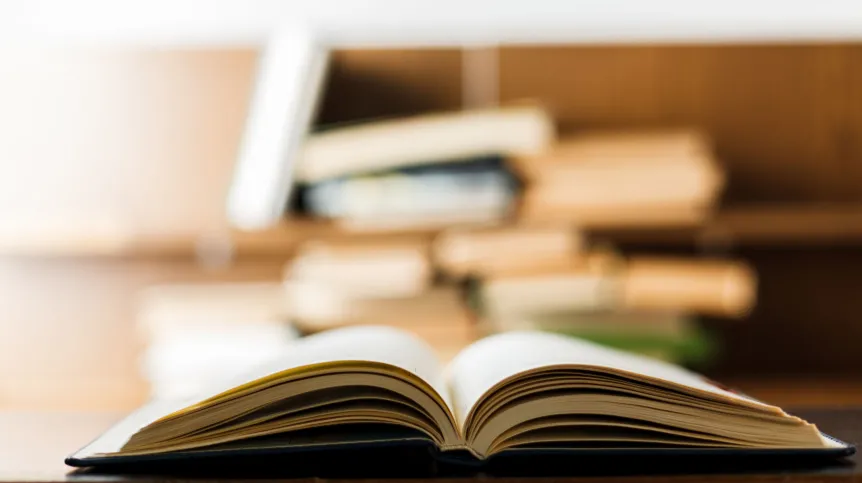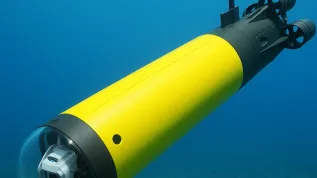
The Foundation for Polish Science (FNP) launched its book Reaching for the Unexplored, presenting 30 exceptional research achievements made by Polish scientists that have gained recognition in the world of science.
The book Reaching for the Unexplored: Scientific Achievements Co-Financed by the FNP was published for the 30th anniversary of the Foundation for Polish Science. The book launch took place last week in Warsaw.
The book contains texts concerning research projects in many fields including physics, biotechnology, astronomy, chemistry, mathematics, environmental protection, oncology, psychology, demography, archaeology and history.
All the described discoveries were made by scientists affiliated with Polish scientific institutions. The publication presents the story of the improvement of measurements of cosmic distances and confirmation (by observation) of Albert Einstein's hypothesis about the existence of gravitational waves.
The selection key captured the close relationship between the foundation's support, the development of the author's scientific research, and their position in world science.
'The selection criteria for scientific publications from applied sciences was the number of citations in 1991–2020 in the Web of Science database. From among the publications belonging to the group that captures 1% of works most frequently cited in a field (Highly Cited in the Field; HCF), we selected for Reaching for the Unexplored the top 20 HCF articles that indicated the FNP’s (co-)financing and preparation under the leadership of a scientist affiliated in Poland', we read in the release sent to the media.
'In humanities and social sciences, we considered achievements initiated thanks to the FNP support, whose results were appreciated by the international scholarly community; this group includes 10 scientific achievements presented in the book', reads the release.
In an interview with PAP, the president of the FNP, Professor Maciej Żylicz admitted that the preparation of the publication on the occasion of the 30th anniversary of the Foundation for Polish Science was a good moment to reflect on the variety of research project financed from the foundation's budget.
The group of people, whose professional history was described in the book presented at the launch in Warsaw, includes:
1. Professors Elżbieta Frąckowiak and François Béguin - electrochemistry, carbon materials research, electricity storage
2. Professor Janusz Bujnicki - bioinformatics, biological databases
3. Professors Tomasz Bulik and Dorota Rosińska - astrophysics, evolution of stars in the Universe, detection of gravitational waves
4. Professor Bogusław Buszewski - environmental chemistry and analytical chemistry, development of separation techniques
5. Dr. Rafał Demkowicz-Dobrzański and Dr. Jan Kołodyński - theoretical physics, quantum metrology
6. Professor Marcin Drąg - biochemistry, research on proteases, use of non-natural amino acids
7. Professors Miłosz Giersz and Patrycja Prządka-Giersz - archeology of the Andes and South America, material culture of the pre-Columbian Andes
8. Professors Dominika Nowis and Jakub Gołąb - cancer immunology and immunotherapy, photodynamic cancer therapy
9. Professor Maciej Gołąb - musicology, methodology of musicological research
10. Professor Karol Grela, Dr. Cezary Samojłowicz, Dr. Michał Bieniek - organic chemistry, chemistry of catalytic olefin metathesis
11. Professor Daniel Gryko - porphyrinoid chemistry, research on aromatic compounds
12. Professors Ryszard Horodecki, Paweł Horodecki, Michał Horodecki, Dr. Karol Horodecki - theoretical physics, research into quantum entanglement, quantum computing
13. Dr. Artur Kalinowski - particle physics, experiments conducted at the Large Hadron Collider
14. Professor Tomasz Lipniacki - modelling in biology and medicine, mathematical modelling in cytokine research
15. Professor Aleksandra Łuszczyńska - health psychology, developing implementations for use in clinical practice
16. Professor Krzysztof Matyjaszewski and Dr. Joanna Pietrasik - polymer chemistry, designing materials with specific properties
17. Professor Roman Michałowski - history of the Polish Middle Ages in the context of world history
18. Professor Jacek Namieśnik and Dr. Marek Tobiszewski - analytical chemistry, environmental pollution analysis
19. Dr. Łukasz Niesiołowski-Spanò - history of antiquity, research on the history of ancient Palestine and biblical Israel
20. Professor Justyna Olko - research on the (inter)cultural, socio-political and linguistic history of Mesoamerica with particular emphasis on the Nahua Indians, revitalization of endangered languages of ethnic minorities, engaged humanities
21. Professor Grzegorz Pietrzyński - observational astrophysics, methods of measuring cosmic distances
22. Dr. Małgorzata Pilot - evolutionary biology and behavioural ecology, genetics of wild canines and free-living dogs, research on dog domestication
23. Professor Tomasz Puzyn - chemoinformatics and environmental chemistry, development of modelling methods for the design of nanomaterials and ionic liquids
24. Professor Jan Strelau - psychology of individual differences, research on temperament
25. Professors Piotr Trzonkowski and Natalia Marek-Trzonkowska - immunology, research on the use of Treg lymphocytes in cell therapy
26. Dr. Marek Węcowski - ancient history, research on ancient Greece, the role of the aristocracy and the symposium
27. Professor Andrzej Wiśniewski - philosophy, philosophical logic, inferential logic of questions
28. Professor Bogdan Wojciszke - personality psychology and social psychology, development and research on a model of two-dimensional social perception
29. Professor Marek Żukowski - quantum physics, the basics of quantum mechanics, research into quantum entanglement, quantum information technologies
30. Professor Karol Życzkowski - theoretical physics, quantum information theory, quantum mechanics.
PAP - Science in Poland, Urszula Kaczorowska
uka/ ekr/
tr. RL













